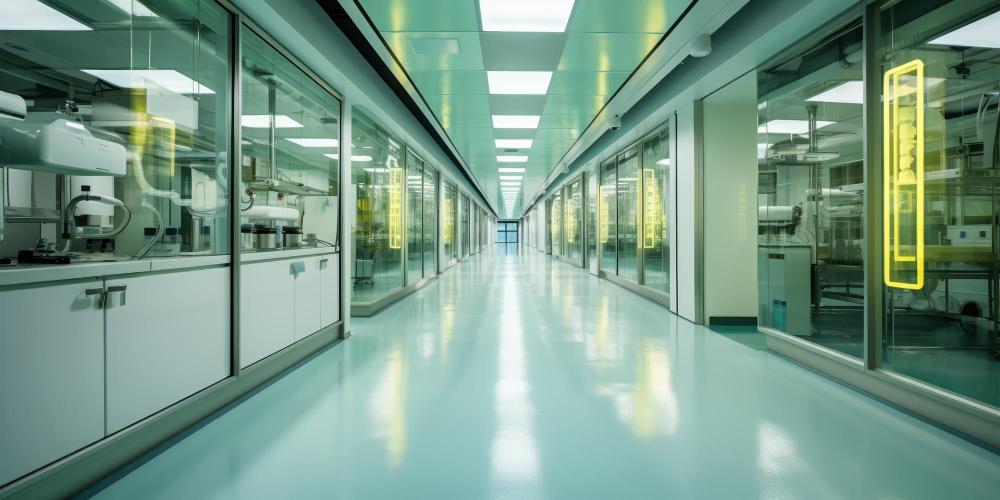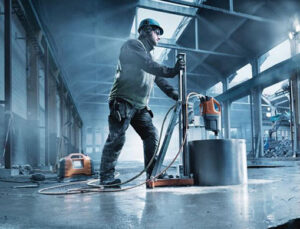Antibacterial Flooring for Cold Storages in the Philippines
The food and pharmaceutical industries are vital to an economy’s health. For this reason, keeping cold storages in the Philippines in tip-top shape is key to protecting perishable items, ensuring they’re safe to eat or use. One aspect that often flies under the radar is the floors of these facilities. These are also highly regarded for upholding hygiene and safety standards. Enter antibacterial flooring; an innovative solution. It is currently gaining traction for its ability to boost cleanliness and minimize contamination risks. Thus, making it a hot topic for businesses in these industries.
Understanding Antibacterial Flooring
What is Antibacterial Flooring?
Antibacterial flooring refers to specially designed surfaces that inhibit the growth of bacteria and other harmful germs. These are typically made from non-porous materials such as epoxy or polyurethane. Which means they are not only durable but they are also easy to clean. This makes them particularly suitable for environments like cold storage facilities where hygiene is paramount.
Benefits of Antibacterial Flooring
One of the primary advantages of antibacterial flooring is that it enhances cleanliness and hygiene. In settings where food is processed or stored, even minimal contamination can lead to significant health risks.
These flooring solutions help mitigate microbial contamination with its smooth surface. This repels spills and moisture, which is essential for following food safety standards like HACCP. Following strict protocols is necessary, especially as these regulations become stricter in the Philippines. Also, lowering the chances of contamination lets businesses reduce product recalls and waste. It ultimately saves costs and builds greater consumer trust.
Relevance to Current Trends
Growing Emphasis on Food Safety
Globally, there has been an increased emphasis on food safety, and the Philippines is keeping pace with this trend. As awareness of foodborne illnesses rises, regulatory bodies are tightening their standards for food processing and storage facilities. This is why antibacterial flooring is vital for helping businesses meet these regulations. It helps create a hygienic environment that reduces contamination risks.
With stringent regulations in place, businesses are compelled to invest in infrastructure that meets these requirements. Antibacterial flooring not only aids in compliance but also signals a commitment to consumer safety.
Energy Efficiency and Temperature Control
These cold facilities require precise temperature control to effectively preserve perishable items. Flooring solutions like epoxy or polyurethane coatings provide excellent insulation properties. They help maintain stable temperatures within these environments. Not only does these help in preserving food quality, but these also improve energy efficiency. It eases the burden on refrigeration systems.
Opting for high-quality antibacterial flooring lets businesses achieve superior temperature regulation while simultaneously improving hygiene. This dual advantage supports operational efficiency and can lead to substantial cost savings.
Industry Applications
Food Processing Sector
The food processing industry has specific flooring needs due to strict cleanliness requirements. The presence of heavy machinery and foot traffic are commonly observed in this industry. Antibacterial flooring is particularly advantageous here. This is because of its strong surface that withstands wear while preventing microbial growth.
Numerous food processing plants in the Philippines have successfully adopted antibacterial flooring solutions. It meets both hygiene standards and operational needs. These installations ensure adherence to health regulations while creating a safer environment for workers.
Healthcare and Pharmaceutical Storage
In healthcare environments, maintaining strict hygiene is very critical. Why? Because of the need to store temperature-sensitive medical supplies. Antibacterial flooring solutions are important for keeping these spaces clean and free from contamination.
Hospitals and pharmaceutical companies in the Philippines are increasingly relying on advanced flooring technologies. The medical industry is now incorporating antimicrobial properties. These solutions satisfy rigorous cleanliness standards. It also provides durability needed for high-traffic areas within healthcare facilities.
Logistics and Distribution Centers
Logistics and distribution centers are responsible for maintaining product integrity during transportation. For businesses dealing with temperature-sensitive goods like pharmaceuticals or perishable foods, reliable antibacterial flooring is necessary.
This type of flooring helps ensure safe storage conditions. It prevents microbial growth during transit or while products are housed in warehouses. Such an investment protects product quality and enhances operational efficiency throughout logistics operations.
Technological Innovations in Flooring Solutions
Advances in Materials and Design
Innovative antibacterial solutions have improved performance characteristics of flooring. Modern materials now are created with durability as a priority. This ensures they can handle heavy traffic while retaining their antimicrobial properties.
On top of this, new formulations of epoxy now include advanced antimicrobial agents that deliver long-lasting protection against bacteria. There is no need to sacrifice aesthetic appeal and functionality here. These flooring solutions give businesses a variety of design alternatives while ensuring compliance with hygiene standards.
Durability and Maintenance Considerations
These floors must withstand heavy machinery use, foot traffic, and moisture exposure without deteriorating over time. Antibacterial flooring is specifically designed for longevity. This makes them ideal for the demanding conditions typical of these cold facilities.
To ensure the effectiveness of antibacterial properties, proper maintenance is key. Regular cleaning with suitable detergents keeps the floor free from contaminants. At the same time, preserving its antimicrobial capabilities. Lastly, businesses should develop maintenance protocols designed for their specific flooring. This is going to guarantee long-term performance.
Key Takeaway
Antibacterial flooring has become essential for facilities like cold storages in the Philippines. This is highly needed for the growing food safety worries and increased consumer awareness. These specialized floors not only promote hygiene, but it also enhances energy efficiency. Not to mention, helping businesses stay compliant with regulations.
Remember, choosing the right antibacterial flooring will enable companies to build safer and more efficient cold storage spaces. Thus, ensuring peace of mind all around.














Post Comment